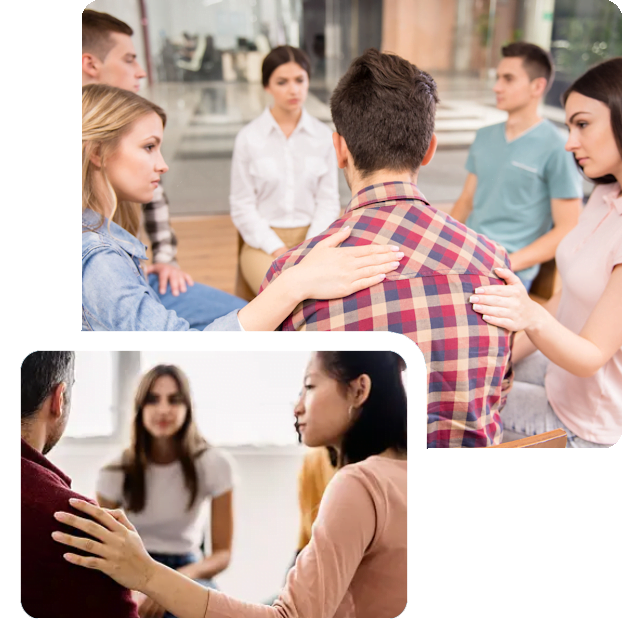The use of this drug causes increased sensations of warmth and love towards others along with sensory distortion. Long-term use of Molly can cause serious physical and psychological problems. There have even been instances where even first-time users died of a sudden heart attack. If you feel like your MDMA use has gotten out of control, receiving professional substance use treatment is the best way to get on the path toward healthy living.

Healing Begins Here
What Is MDMA?
Typically used in raves and nightclubs, the MDMA is popular for its hallucinogenic properties. People who use ecstasy may also have the tendency to abuse other illegal drugs, such as LSD or marijuana.

Side Effects of MDMA
- High blood pressure
- Intense sweating
- Inhibition
- Severe dehydration
- Kidney failure
- Irregular heart rhythm
- Heart attacks
- Seizures
If you or your loved one is looking to stop using MDMA, the right destination is Crestview Recovery in Portland, Oregon. As the leading substance use treatment center, we have healed thousands of people while empowering them with life skills to manage their lives in healthy ways.
How Crestview Recovery Can Help
We designed our rehab treatment programs with your privacy and comfort as our top priority. With a serene campus surrounded by beautiful scenery and waterways, you will not feel like you’re at a rehab center. Instead, it will feel like a relaxing getaway. Additionally, our multiple therapies in the forms of yoga, art, and life skills rehab aim at healing your mind, body, and soul.
There could be many other reasons behind your Molly use. Past trauma, undiagnosed depression, or a lack of coping skills are just some of the possible reasons. We understand the complexity behind drug use, which is why we designed a dual diagnosis program that addresses mental health concerns and addiction simultaneously.
We also offer family and group therapies to ensure optimum support and encouragement to stay drug-free. After treatment, our sober living program helps people transition from rehab to their home by teaching crucial life skills.
Some of the comprehensive addiction treatment programs at Crestview Recovery include:
A long-term, residential treatment program that provides comprehensive care for people struggling with addiction. These programs typically last between 90 and 120 days, and they include a variety of therapeutic modalities, such as individual and group therapy, 12-step meetings, and holistic activities.
The 12-step recovery program is a set of guiding principles outlining a course of action for addressing addiction and substance use. The program’s foundations are based on the belief that addiction is a disease that can be effectively treated by involving a higher power, admitting defeat, taking responsibility for past actions, and making amends.
A partial hospitalization program (PHP) is a type of treatment that provides intensive care for people recovering from addiction. It is typically used as a step down from inpatient treatment or as a step up from outpatient care. PHP can be an effective treatment for addiction because it allows people to receive intensive care while still being able to live at home and continue with their normal daily activities.
Evening Intensive Outpatient Programs (EIOPs) are addiction treatment programs that offer a more flexible schedule for those who cannot commit to a full-time, inpatient program. EIOPs are beneficial for those who need more structure than weekly outpatient therapy but cannot commit to a full-time inpatient program.
Aftercare is a set of practices and procedures designed to help people in addiction recovery maintain sobriety and avoid relapse. It typically includes ongoing counseling and support, as well as continued involvement in 12-step or other recovery programs. The goal of aftercare is to help people in recovery build a strong support network and establish healthy habits that will reduce the risk of relapse.
Patients in life skills rehab learn how to budget their time and money, cook healthy meals, find and keep a job, and navigate social situations without using drugs or alcohol. They also learn how to deal with triggers and cravings, manage their emotions, and build a support network of family and friends. Life skills rehab can be an important part of the recovery process for many people struggling with addiction.





















